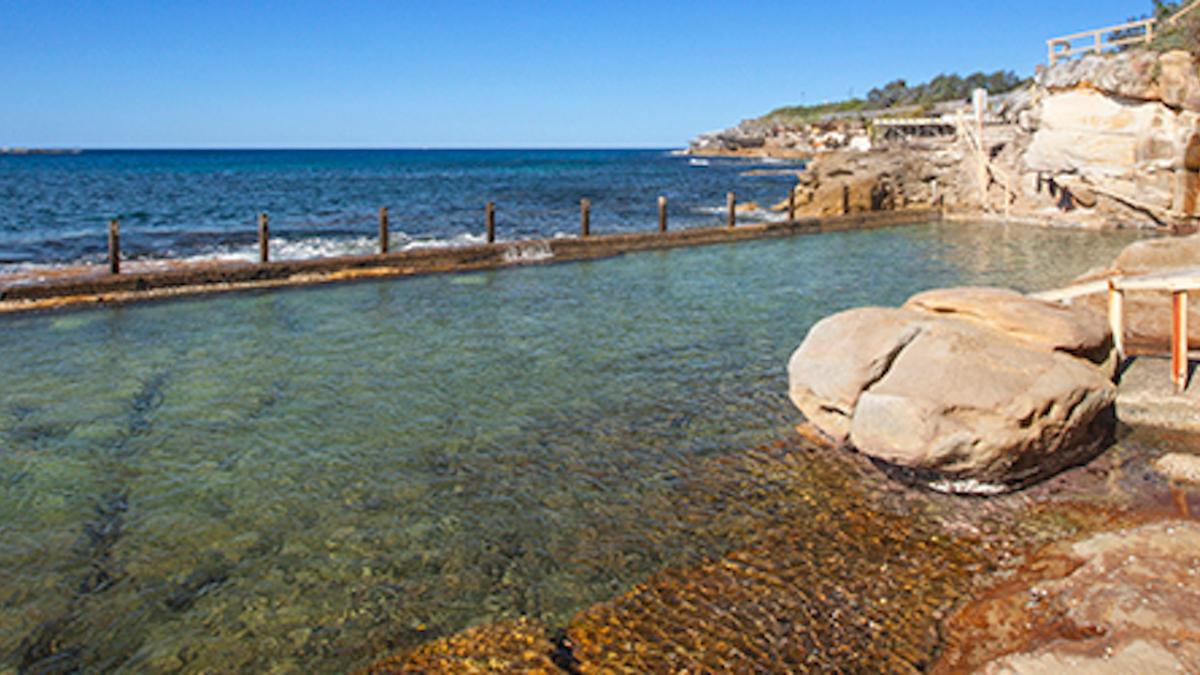
McIver’s Ladies Baths is a heritage-listed ocean pool in Coogee, NSW that since 1922 has provided a space for women and children to bathe and relax outside the presence of men. It’s a popular spot, one I’ve frequented often over the last five years. Part of its appeal, I think, is that it has the capacity to be a lot of things to a lot of people. For me, it’s always been a queer haven, a space I’ve shared precious time with friends and partners, and a place that, up until recently, I’ve always felt pretty comfortable at as a trans person.
Late last week, a screenshot began circulating on social media, taken from a section on the baths’ website which claimed that only transgender women who had undergone “a gender reassignment surgery” were permitted entry. It’s worth making clear that the idea that affirmation surgery somehow legitimises a trans person’s gender is bogus. For many trans people, it’s something that’s financially or medically inaccessible. It’s also just not a process all trans people have interest in pursuing. Either way, it’s exactly nobody’s business what shape anyone else’s genitals are – at the beach or elsewhere – and it’s difficult to imagine the baths actually enforcing such a policy.
Hey chicks, who has done an Instagram like this at the McIvers Ladies Baths? If you have, please take the time to contact the baths and Randwick City Council to note your concern at their transphobic policies. All women, trans and cis, need safe places to swim and to be. pic.twitter.com/UVYJ2T2cXv
— Ally Garrett (@allygarrett) January 11, 2021
After considerable backlash, the baths have since changed their answer – or at least, their wording. First, they amended the section on their website to say the baths have an exemption under the Anti-Discrimination Act awarded in 1995, a kind of vague non-answer that doesn’t really clear anything up.
The site now states (at time of writing) that transgender women are allowed entry to the baths, with a definition of transgender they say is based on the NSW Discrimination Act.
A generous reading of that wording seems to imply that trans women are welcome regardless of whether they’ve had surgery, but it’s not explicitly communicated. Even then, a generous reading doesn’t change the fact that it took a huge wave of public outcry for the baths to even acknowledge that their policy was fucked in the first place – there’s been no apology for instilling it, or transparency around how that decision was made.
Beaches are already a conflicted space for trans people. Being in the ocean is a hugely restorative, healing experience for me – there’s often a transcendent moment where I genuinely feel at home in my body in a way I rarely do on land.
But it almost always comes with levelling up the risk of harassment, or worse. It’s impossible to frame beaches as a neutral site, and there’s an added layer of vulnerability that comes with being visibly trans, in a lot of ways exposed, in a place that so heavily prizes more “normative” bodies. There’s likely no other place I feel such an undercurrent of anxiety that I’ll face scrutiny for not conforming to a cissexist ideal of what a body “should” look like than the beach. As a white, able person I still hold a lot of privilege in this regard, but it doesn’t change the fact that I still tense up every time I can feel someone registering my body, internally dissecting whether or not it should be there.
Beaches in Australia have a peculiar spot in the collective imagination that correlates with not only cissexism but whiteness and other privileged identities. It’s an environment that’s embedded deep in the nationalist mythology of this country, one that equally tries to position us as a nation of easygoing larrikins while being distinctively at odds with non-normative bodies.
A space like McIver’s, which ostensibly seeks to facilitate an alternate environment outside of that gaze, loses its significance if it’s just another site for policing whose bodies are acceptable, another site for both literal and figurative gatekeeping. White, cisgender women deciding who gets access to what is, at the end of the day, stolen land.
I’ve been reflecting a lot on gatekeeping in the past few days. If you can understand why it’d be important for women to have a safe space like McIver’s posits to be, then it’s frustratingly difficult to understand what threat you think trans women pose to that space. If you can impose arbitrary restrictions on what makes someone welcome or not at a space like McIver’s, where might you stop? What of transmasculine and non-binary people? For that matter, what of cis women who don’t meet whatever preconceived checkmarks for femininity that are apparently so essential for having a dip in an ocean bath?
Ultimately, I couldn’t care less about the relevant legal technicalities here, or even about this one particular instance of transmisogyny. It’s been a deeply heartening experience to see community rally around trans people over the last few days, but it’s also difficult for it not to feel like a bit of a forest for the trees situation. A communal space not doing the work to make trans people feel welcome and safe is not an irregularity, not out of step with what trans people face in the world more broadly – it’s reflective of it.
As always, it’s a reminder that, years from the “transgender tipping point” of half a decade ago, we still need people to show up for us in tangible ways, long after the headlines have disappeared.
Alex Gallagher is a journalist, poet and big-time ocean enthusiast. They’re on Twitter at @lexgallagher.



